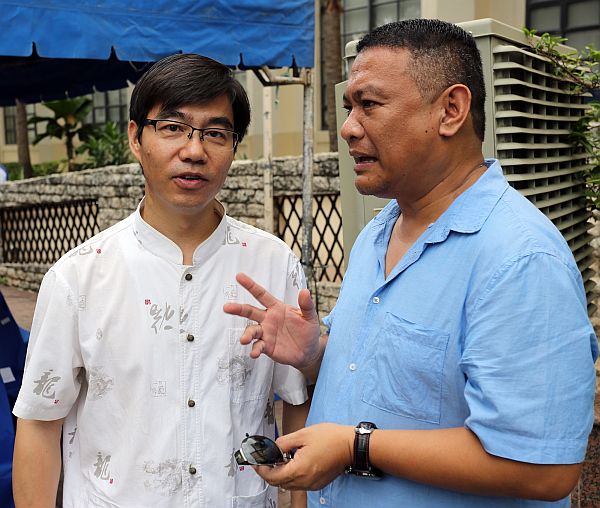
SHI YONG (Left)
Negative tags fail to dampen local leaders’ optimism about country’s chances for growth
Despite the negative publicity the Philippines has been getting lately, what with the reports tagging the Philippines as one of the “most dangerous” in the world, local business leaders and government officials believe there is still hope for the country.
The World Economic Forum’s (WEF) recently released Travel and Tourism Competitiveness Report placed the Philippines on the 11th spot in a list of the “most dangerous countries for tourists,” but Cebu continues to be less affected by this development.
“It is business as usual in Cebu, and we continue to welcome tourists from other countries as they come to enjoy our sites and hospitality,” said Cebu Chamber of Commerce and Industry (CCCI) president Melanie Ng.
The Maute group’s takeover of parts of Marawi City in Mindanao made headlines across the globe, and not long after, reports about a shooting and a fire at a Manila Casino surfaced.
Global Peace Index
In a list by the Business Insider, an online business news site, it said that kidnappings are common throughout the Sulu Archipelago and the southern Sulu Sea, with foreigners often the target of these activities.
The Global Peace Index, meanwhile, also reported that the Philippines is the second least peaceful country in the Asia Pacific region, only after North Korea, owing to the current administration’s “bloody war against drugs and crime.”
Friendliest island
Even as international bodies consider the Philippines as such, Ng said, she is still confident in Cebu’s vibrant tourism industry, especially since the province was recently named one of the friendliest islands in the world in a survey by New York-based Travel and Leisure Magazine.
She said these past recognitions would help buffer the effects of reports such as those released by the WEF and the GPI.
“We will continue to market Cebu and our region as an ideal tourist destination where businesses thrive and tourists get to enjoy world-class facilities,” said Ng.
Nonetheless, she said there is a need to continue making sure security measures are in place and that open communication lines between the private sector and security forces are maintained.
Cebu tourism officer
Joselito Costas, Cebu provincial tourism officer, on the other hand, said he would rather be an optimist in times like these.
“I would rather dwell on the reality that people still visit the Philippines because of its natural environment, an appealing quality that far outweighs the level of risk,” Costas said.
He said the country’s terrorism incidence is high, which gravely impacts the national economy, and the recent Bohol clashes and Marawi sieges send bad signals to tourists, who think these are frequent.
Price, safety, security
Costas said tourism-related businesses might be forced to cut prices to lure more visitors.
Edilberto Mendoza, past president of the Cebu Association of Travel Operations Specialists (Catos), said this would be an option that the tourism industry could consider, but it would not be necessary.
“The issue here is not the price but safety and security. Besides, our prices are competitive and not really that high,” Mendoza said.
Nonetheless, he said he remains optimistic that all these will come to pass as the government continues to do what it can to solve safety and security issues in the country.
Investment destination
On a positive note, the Philippines has become a more attractive destination for prospective foreign direct investments as it placed seventh in a list of economies named as “most promising host countries” in the United Nations Conference on Trade and Development (UNCTAD) 2017 business survey.
The country ranked 7th in a list of 15 developing and developed countries chosen by business executives of multinational companies when asked for their top prospective host economies for this year until 2019.
With an economy growing at 6.8 percent in 2016, Philippine Retailers Association Cebu Chapter president Robert Go said this did not come to him as a surprise.
“The promise of return for every investment is very high,” Go said.
Investments in developed countries, on the other hand, are tapering down to slow growth or none at all.
He said the Philippines has a low base, that is why the opportunities for economic expansion abound.
Disclaimer: The comments uploaded on this site do not necessarily represent or reflect the views of management and owner of Cebudailynews. We reserve the right to exclude comments that we deem to be inconsistent with our editorial standards.
